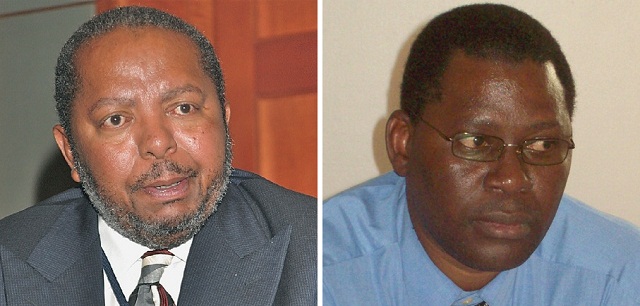
Deputy Governor Kasekende had earlier told a gathering at a Uganda Securities Exchange dinner in Kampala on April 06, that the most important contribution that BoU can make to the economy is to ensure that inflation remains low and stable, so that investors can draw up business plans for the future.
He said this would put investorsin a comfortable position that their investment projects will not be jeopardised by macroeconomic instability and that households will not see their hard earned savings eroded by inflation.
Thinking of private sector
Gideon Badagawa, the executive director at Private Sector Foundation Uganda, said projections by Mutebile might be right but the challenge for agriculture – which is one of those sectors expected to contribute to the projected growth – is dependent on seasons.
“If we are going to have sustained production in the sector, we need to invest in water for production [irrigation] to avoid likely shocks that might hit us mid-way,” Badagawa told The Independent on April 09.
On the sluggish growth of the private sector credit, Badagawa said that the answers are known to Mutebile and the other officials in government.
He said PSC is not growing largely because government has refused to exit domestic borrowing – a scenario that has kept interest rates high and expensive.
Going forward, he said there has to be a ceiling on government’s domestic borrowing.
Currently, the government’s domestic borrowing stands at around Shs900bn for FY2017/18. Government says the amount will reduce going forward.
Badagawa also said PSC is not growing because the only Development Bank – Uganda Development Bank – is still undercapitalised.
“You cannot achieve the 6.5% growth without supporting the private sector to borrow cheaply,” he said.
“We are competing with our colleagues who borrow at 2-3%,” he said in reference to the Chinese businesses that acquire cheap capital back home for investment in Uganda.
Mugume, however, said they hope PSC will pick up soon. He said the problem with PSC was the high Non-Performing Loans that increased in the period after 2015 largely because of some challenges experienced with now the defunct Crane Bank.
This, he says, was worsened by a slow growth of the economy as commercial banks tightened lending requirements in response to high NPLs that had jumped to over 10% from below 5% earlier.
Julius Mukunda, the national coordinator of the Civil Society Budget Advocacy Group (CSBAG) also shared Badagawa’s views.
He said the agriculture sector’s growth would double if government cared to supply seedlings under Operation Wealth Creation that germinate (instead of the 40% that don’t) in addition to investing heavily in irrigation farming.
Commenting on investment in oil and gas, Mukunda said, the sector cannot be relied on because it is alwaysspeculative in nature and thatanything can happen to make investors halt operations and leave.
He however, called for good land reforms that would attract foreign and local investors in all sectors of production.
He saidthe government and the private sector should also focus on implementing financial services sector reforms including Islamicbanking to bring about financial deepening and inclusion.
Mukunda added that the government also needsto carefully think about the enforcement of recent directives like one on taxing social media and the other on the ban of SIM card vending. He said strategic mistakes in these directives could negatively impact the performance of the services sector and thus hurt the economy.
 The Independent Uganda: You get the Truth we Pay the Price
The Independent Uganda: You get the Truth we Pay the Price





